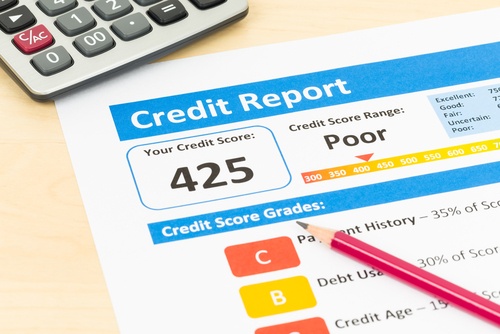In a foreclosure, not only can you lose your home, but your credit rating can also be affected. The extent to which your beacon score will drop includes a number of variables. These variables include who the lender is, how much you have owing, whether your mortgage is conventional (more than 20% down payment), or high ratio (less than 20% down payment), and the current property value. The funny thing is, each lender reports to the credit bureaus in a different way. Some foreclosures have no impact on a borrower’s credit score, whereas others can impact credit for years to come. The system has become more regulated over the years but there is still a lot of variety in how various lenders report to the credit bureau.
Even if you are foreclosed out of your home, there are many secondary lenders that may be willing to lend you money and/or provide you with a mortgage within 2-3 years of a foreclosure. The key is to re-establish your credit by that time.

So how do you go about re-establishing your credit after a foreclosure?
Utilize the credit you have remaining
The first thing to do after a foreclosure is to make sure you keep your credit active. This is not the time to cut up your credit cards and to avoid borrowing at all costs. At this point, you want to prove to lenders that you can use credit in a responsible manner. The rule of thumb is that you want two active credit sources open at any given time (ie. credit card, line of credit, etc). It is imperative to keep up with your payments to show you use credit wisely. A solid recommendation would be to have a credit card that you use for small purchases that you can easily pay off within the 21 day grace period so as to avoid interest charges.
Obtain new credit
If obtaining a credit card after a foreclosure being reported on your credit history proves to be difficult, look to get a secured credit card. This type of card requires the cardholder to place a deposit with the card issuer to secure any balance owing on the card. This provides the issuer zero-risk on the principle, while the borrower still gets the benefit of utilizing a form of credit and having your payment history reported to the credit bureaus. Over time an excellent payment history can help to drastically improve your credit score.
Stop the foreclosure and save your credit
The very best advice on how to save your credit is to avoid foreclosure altogether. If you work to stop the foreclosure before the mortgage lender notes you in default, the long-term damage to your credit can be significantly reduced or avoided altogether. If you are currently in or facing a foreclosure, the time to get the help you need is now. Contact us today to see what options you may have to save your home and your credit from foreclosure.
Related Articles:The Effects of a Foreclosure in Alberta
